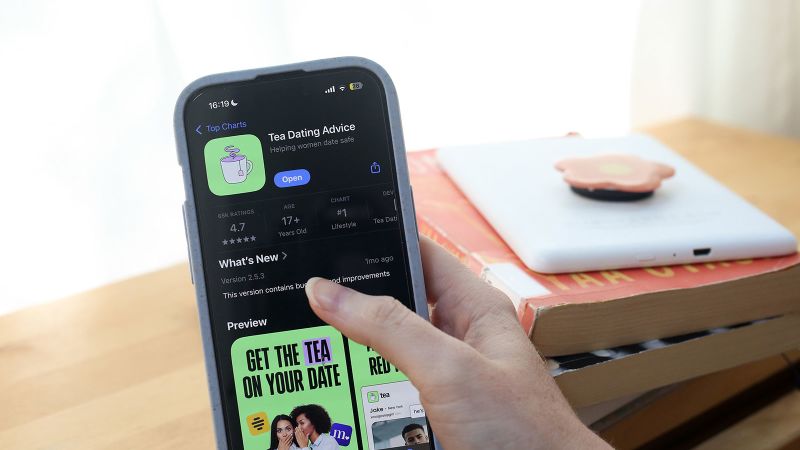In a recent incident highlighting security vulnerabilities in dating applications, the company behind Tea Dating Advice experienced a significant data breach, compromising 72,000 images, including 13,000 user verification images. This breach poses serious privacy concerns, especially given the nature of the app that allows women to anonymously share information about men they date, intending to enhance their safety. The company confirmed the breach publicly on a Friday and provided details on the nature of the information accessed, which has raised alarms about user safety and privacy in the digital dating scene.
Tea Dating Advice requires users to submit a selfie as part of their account verification process to confirm that they identify as women. Although the app claims that these images are deleted upon account approval, the breach has exposed users to potential risks, particularly those who registered before February 2024. Approximately 59,000 additional images that were involved in the breach were found to be publicly accessible within the app through posts, comments, and direct messages. The implications of such a breach can be severe, as sensitive images, especially those linked to one’s identity, can be exploited maliciously.
The issue at the heart of this breach raises critical questions regarding privacy and safety when sharing personal images on platforms like dating apps. Rachel Tobac, the CEO, and co-founder of SocialProof Security, elaborated on the risks associated with sharing selfies online. While a selfie might seem harmless at first glance, it can be leveraged in fraudulent activities such as hacking bank accounts, especially when combined with other forms of identification. Given the misuse potential, Tobac advised users of Tea to take proactive measures to enhance their security, which includes freezing their credit, utilizing data removal tools, and employing multifactor authentication.
Moreover, Tobac commented on the growing trend of identity and age verification, noting that while it can be a useful feature, it inherently raises the risk of attracting cybercriminals since companies collecting more information become enticing targets. Albert Fox Cahn, the founder of the Surveillance Technology Oversight Project, echoed this sentiment by emphasizing that increasing surveillance and verification could lead to misuse of the captured data by hackers or law enforcement. Both experts cautioned against the normalization of facial recognition and the subsequent risks it entails.
Cahn particularly urged consumers to reconsider their data-sharing habits, suggesting that opting out of excessive information sharing would be the best way to safeguard personal data. This incident is not an isolated one, as dating applications have a history of security breaches. For instance, Tinder faced backlash in February 2014 for a technical issue that exposed users’ physical locations, while Ashley Madison suffered significant data breaches affecting millions of users in July 2015.
In response to growing concerns, some dating services are implementing verification measures. Tinder, for example, offers a verification process using government-issued documents, and Texas Governor Greg Abbott recently signed legislation that mandates age verification for apps in app stores operated by major platforms like Apple and Google. Despite these measures, a widespread culture of cautious data sharing remains crucial since once intimate images are exposed, the repercussions can last indefinitely.
Experts in the cybersecurity field, like Richard Blech from XSOC Corp, have further emphasized the dangers embedded in such breaches, calling images and selfies “data goldmines” for malicious AI-driven attacks. The potential for misuse includes training systems for biometric bypassing and creating deepfakes. Blech highlights the need for vigilance among users whose images were compromised, stressing that unlike passwords or phone numbers, biometric data does not become obsolete and can be exploited indefinitely.
In conclusion, the breach affecting Tea Dating Advice serves as a critical reminder of the importance of digital privacy and security in an era where personal data is rapidly proliferating across various platforms. With evolving threats and vulnerabilities in the digital landscape, individuals must remain proactive in protecting their personal information, reconsider their sharing habits, and adopt security measures to safeguard themselves against potential malicious breaches.












